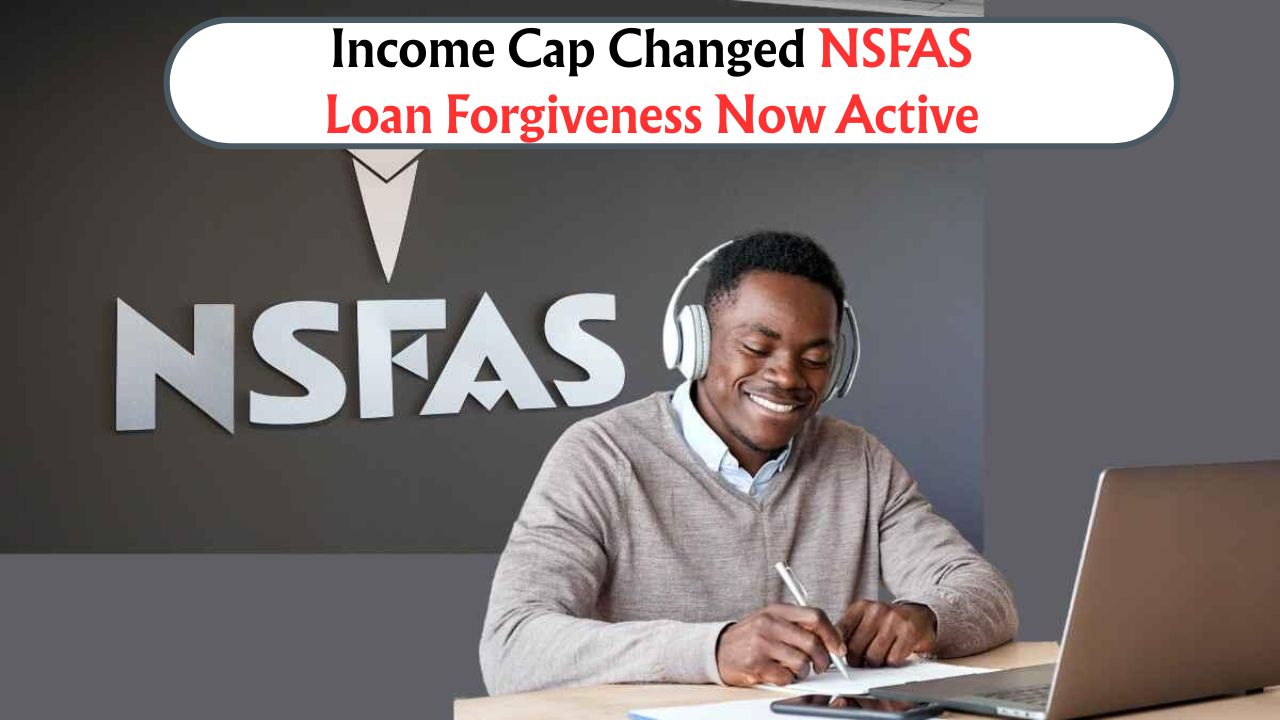NSFAS 2025 – The National Student Financial Aid Scheme (NSFAS) has recently announced significant updates that promise relief for thousands of South African students. In an unprecedented move aimed at reducing the overwhelming burden of student debt, NSFAS has declared full loan forgiveness for around 67,000 eligible students. Alongside this significant announcement, NSFAS has increased its income eligibility cap and introduced a groundbreaking loan-to-grant conversion system, effective immediately. Student debt has been a persistent barrier, impacting young graduates’ financial stability and their ability to fully contribute to the economy. Recognizing these challenges, NSFAS, together with the Department of Higher Education and Training (DHET), developed strategic solutions aimed at providing practical financial relief. Under this new policy, students who graduated between 2010 and 2024 and meet certain financial conditions will no longer be required to repay their loans. This transformative step is expected to significantly ease graduates’ financial burdens, enabling them to more effectively pursue career opportunities and long-term financial goals. Additionally, NSFAS has raised its income eligibility threshold, extending financial aid access to more students from middle-income households. This new policy change will potentially benefit thousands more who previously did not qualify due to slightly higher family earnings. Another remarkable update is the launch of the innovative loan-to-grant conversion system. This new measure ensures that students initially granted loans will see their debt converted to grants upon successful completion of their studies, provided they meet specific academic performance standards. These combined initiatives represent a bold and progressive shift in higher education funding policy, aiming to create more equitable opportunities for South African students and families.
NSFAS 2025 Loan Forgiveness Program Details
This initiative directly addresses the ongoing issue of student debt, offering substantial relief for eligible graduates.
Eligibility criteria:
- Graduated between 2010 and 2024.
- Annual family income below R350,000.
- Graduated from an accredited South African institution.
- Outstanding NSFAS loan repayments.
Documents required:
- Certified copy of ID.
- Graduation certificate.
- Recent proof of family income.
- NSFAS loan agreement copy.
Application timeline:
| application stage | opening date | closing date |
|---|---|---|
| online application | 15 July 2025 | 15 September 2025 |
| document verification | 16 September 2025 | 30 October 2025 |
| approval notification | 1 November 2025 | 30 November 2025 |
Key Changes in NSFAS 2025 Income Cap Policy
The updated income cap policy significantly broadens access to NSFAS financial assistance.
Highlights of the new policy:
- Previous cap: R350,000 annually.
- New income cap: R450,000 annually.
- Estimated additional beneficiaries: around 35,000 students per year.
Income eligibility comparison:
| annual income | old policy status | new policy status |
|---|---|---|
| below R350,000 | eligible | eligible |
| R350,001 – R450,000 | not eligible | now eligible |
| above R450,000 | not eligible | not eligible |
NSFAS 2025 – Benefits of the Loan-to-Grant Conversion System
NSFAS’s conversion system transforms loans into grants, reducing financial strain post-graduation.
How the system works:
- Initial loan provided to qualifying students.
- Conversion to grant upon successful completion of studies.
- Academic performance standards apply.
Conditions for conversion:
- Minimum average of 60%.
- Completion within prescribed timeframe.
- Submission of essential documents upon graduation.
Loan conversion eligibility:
| condition | requirement |
|---|---|
| degree completion | mandatory |
| academic performance | minimum 60% average |
| timely graduation | within prescribed time |
| document submission | mandatory |
Application Process for NSFAS 2025 Loan Forgiveness
A clear and timely application process is crucial for successful loan forgiveness.
Step-by-step guide:
- Visit NSFAS’s official website.
- Complete the loan forgiveness form.
- Upload all required documents.
- Submit the application online.
- Regularly monitor application status.
Document checklist:
- ID document (certified copy).
- Graduation certificate.
- Family income proof.
- Signed NSFAS loan agreement.
Common Mistakes to Avoid During Application
Avoiding these common errors ensures a smoother application process.
Frequent mistakes:
- Incomplete application forms.
- Missing or uncertified documents.
- Incorrect financial details.
- Late submission.
Tips for error-free applications:
- Verify all details carefully.
- Ensure clear certification of documents.
- Confirm financial information accuracy.
- Submit your application promptly.
Regional NSFAS offices:
| region | address | contact number |
|---|---|---|
| gauteng | Johannesburg CBD, NSFAS HQ | 011 256 3200 |
| western cape | Cape Town City Centre | 021 763 3200 |
| kwazulu-natal | Durban Central | 031 302 3500 |
| eastern cape | Port Elizabeth | 041 586 2700 |
| free state | Bloemfontein Central | 051 401 9111 |
These transformative NSFAS updates mark an essential step towards making higher education more accessible and affordable. Applicants should carefully review eligibility criteria, ensure timely submission, and reach out directly to NSFAS for any needed guidance. Together, these efforts will empower more students to pursue higher education without crippling debt, fostering better educational outcomes and brighter futures for South Africa.
FAQs of NSFAS 2025
Q1: How do I confirm if I qualify for loan forgiveness?
A: If you graduated between 2010-2024, have an outstanding loan, and family income below R350,000 annually, you qualify.
Q2: What’s the updated NSFAS income eligibility cap?
A: The cap has increased to R450,000 annually.
Q3: Are part-time students eligible for loan-to-grant conversion?
A: No, only full-time students graduating within prescribed timeframes are eligible.
Q4: When will my application be approved?
A: Approvals generally take up to two months after applications close.
Q5: What if my loan forgiveness application is rejected?
A: You may appeal within 30 days by providing additional supporting documentation.
